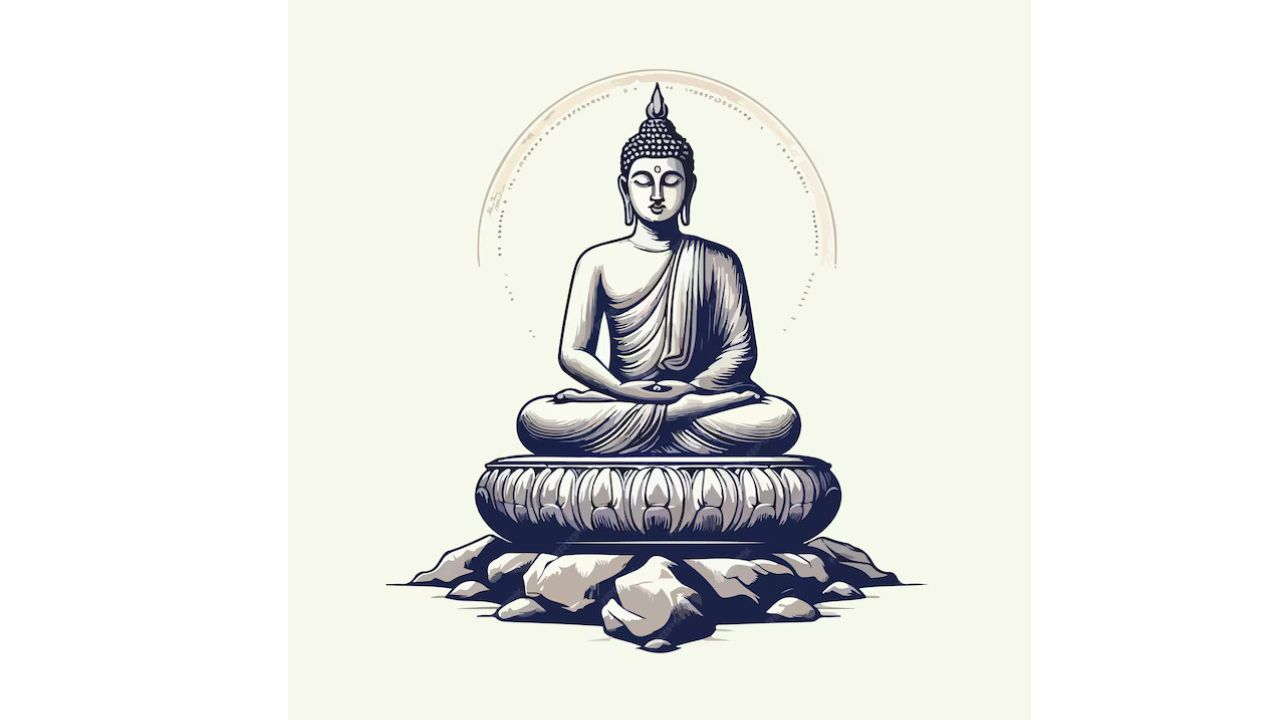Discover the ancient wisdom of Buddhism to cultivate patience in a fast-paced world. Learn how mindfulness, self-awareness, and compassion can help you navigate life’s challenges with greater serenity and resilience.
In a world that is constantly moving at breakneck speed, learning to master patience can be a challenging yet rewarding endeavor. Drawing inspiration from the timeless wisdom of Buddhism, we can discover valuable insights on how to cultivate patience in our fast-forward world.

In our modern, fast-paced world, patience is a virtue that seems to be in short supply. With technology advancing rapidly and instant gratification at our fingertips, mastering patience has become more challenging than ever.
However, the wisdom of Buddhism offers valuable insights and practices that can help us cultivate patience in our daily lives. In this article, we will explore how Buddhism can guide us in mastering patience amidst the chaos of a fast-forward world.
The Meaning of Patience in Buddhism
Patience, or “Kshanti” in Sanskrit, is one of the Six Perfections or Paramitas in Buddhist philosophy. It is the ability to remain calm and composed in the face of challenges, difficulties, and provocations. Patience is not passive resignation but an active choice to respond with kindness and equanimity.
The Nature of Patience in Buddhism
In Buddhism, patience is a foundational practice that enables progress on the path to enlightenment. It is an active process of restraint and non-retaliation, requiring inner strength and discipline.

The patient person sees the common humanity in all beings and responds with empathy, rather than reacting with anger or aggression.
Cultivating patience in the face of difficulties, hardships, and pain helps to develop equanimity, compassion, and wisdom, which are essential for the realization of nirvana and the cessation of suffering.
Understanding the Concept of Patience
- Patience in Buddhism is not passive acceptance or resignation but an active and intentional practice of staying calm and composed in the face of obstacles, difficulties, or challenging situations.
- It involves cultivating qualities such as tolerance, forbearance, and perseverance, allowing us to respond to life’s ups and downs with equanimity and grace.
The Three Types of Patience in Buddhism
- Patience in Enduring Hardships: This type of patience involves remaining steadfast and resilient in the face of physical, emotional, or mental difficulties.
- Patience in Accepting the Truth: This form of patience requires accepting reality as it is, without resistance or denial, embracing impermanence and change.
- Patience in Dealing with Harmful Actions: This kind of patience entails maintaining a compassionate and understanding attitude towards those who harm or offend us, avoiding reactive behavior.
Practicing Patience in Everyday Life:
Practicing patience in everyday life can have numerous benefits, including reducing stress, improving decision-making, and enhancing relationships. Key points include:

1. Recognize the Moment
- Practice mindfulness to become aware of your impatience.
- Take a deep breath and ground yourself in the present moment.
2. Embrace Impermanence
- Understand that everything is transient, including difficult situations.
- Cultivate acceptance and let go of attachment to outcomes.
3. Cultivate Compassion
- Develop empathy for others’ perspectives and struggles.
- Respond with kindness instead of reacting impulsively.
4. Embracing the Process:
- Focusing on the process rather than the outcome, and accepting both the good and bad moments, can lead to clearer thinking and better decision-making.
- Change your perspective on challenging situations to view them as opportunities to pause, reflect, or learn something new.
5. Cultivating Empathy:
- Practicing patience helps cultivate stronger relationships by allowing you to better understand and empathize with others.
- Recognize what you can and cannot control, and practice self-compassion to manage frustration and improve overall well-being
6. Perseverance:
- Embracing challenges and persevering through difficult situations can enhance your daily life and overall well-being.
- Sometimes, taking a break by moving and shifting focus can help to reduce tension and improve patience.
The Power of Patience in Daily Life

1. Enhancing Relationships
- Cultivating patience in our interactions with others fosters understanding, empathy, and harmonious relationships.
- We nurture deep connections built on patience and compassion by practicing active listening, thoughtful communication, and forgiveness.
2. Overcoming Challenges
- Patience empowers us to face challenges and setbacks with courage, resilience, and a positive attitude.
- By reframing obstacles as opportunities for growth and learning, we transform adversity into stepping stones toward personal development and success.
“Patience is not the ability to wait, but the ability to keep a good attitude while waiting.” – Unknown
Benefits of Mastering Patience
Mastering patience has numerous benefits. It helps in making logical decisions, improving overall health by reducing stress and negative emotions, and enhancing relationships by fostering empathy and understanding. Additionally, patience allows for better decision-making, brings peace of mind, and ignites hope.

It also supports long-term goal achievement, improves physical health, and fosters personal growth by increasing self-control, self-compassion, and emotional intelligence. By cultivating patience, individuals can navigate life’s challenges with greater serenity and resilience, leading to a more
1. Emotional Resilience
- Patience enhances emotional stability and resilience.
- It helps us navigate challenges with grace and composure.
2. Improved Relationships
- Patient individuals build stronger and deeper connections with others.
- Communication improves, leading to more harmonious relationships.
3. Enhanced Mental Clarity
- Patience fosters mental clarity and focus.
- It allows us to make better decisions and handle stress more effectively.
Techniques for Developing Patience
Techniques for developing patience include:

1. Noticing Times of Impatience: Identify instances where you lose patience and understand your triggers to better prepare for them.
2. STOP Practice: Use mindfulness to pause, breathe, observe, and proceed, helping to manage impatience and make more thoughtful decisions.
3. Practicing Patience with Small Things: Focus on small, everyday situations to build patience and develop a more flexible approach.
4. Mindfulness and Self-Awareness: Cultivate mindfulness to reduce stress and increase self-awareness, allowing for more patient responses to challenging situations.
5. Acceptance and Self-Compassion: Recognize what you can and cannot control, and practice self-compassion to manage frustration and improve overall well-being.
6. Deep Breathing and Movement: Use deep breathing and physical movement to reduce tension and shift focus, helping to manage impatience.
7. Kindness and Self-Reflection: Practice kindness towards yourself and reflect on your experiences to develop greater patience and understanding.
By incorporating these techniques into daily life, individuals can develop greater patience and navigate life’s challenges with greater serenity and resilience.
Practices for Cultivating Patience
Practices for cultivating patience involve a combination of mindfulness, self-awareness, and intentional actions to develop greater tolerance and acceptance of the present moment. Here are some key practices:

Mindfulness Meditation
- Mindfulness meditation is a fundamental practice in Buddhism that cultivates present-moment awareness and non-judgmental acceptance.
- By observing our thoughts, emotions, and sensations without reacting impulsively, we learn to respond to challenging situations with clarity and patience.
- Practice mindful breathing to cultivate patience and inner peace.
- Set aside a few minutes each day to calm the mind and cultivate patience.
Loving-Kindness Meditation
- Loving-kindness meditation, also known as Metta meditation, involves cultivating compassion, goodwill, and empathy towards ourselves and others.
- By developing a heart of loving-kindness, we create a reservoir of inner peace and patience that can be tapped into during difficult times.
Impermanence and Equanimity
- Reflecting on the impermanent nature of all phenomena and cultivating equanimity help us navigate life’s uncertainties with grace and acceptance.
- By acknowledging the transient nature of joy and suffering, we learn to embrace change with patience and resilience.
Refocusing Techniques
- When feeling impatient, shift your focus to the present moment.
- The STOP practice involves stopping what you are doing, taking a few deep breaths, observing your thoughts and emotions, and then proceeding with a clearer mind
- Engage in a physical activity or creative outlet to redirect your energy.
- Focus on small, everyday situations to build patience and develop a more flexible approach to life
Conclusion
In today’s fast-paced world, mastering patience is a valuable skill that can help us navigate life’s challenges with greater ease and grace. By drawing wisdom from the teachings of Buddhism, we can learn to cultivate patience, embrace impermanence, and respond to adversity with compassion.
Remember, patience is not a destination but a journey of self-discovery and growth. Let’s embark on this journey together, one mindful breath at a time.
Let us embark on the journey of mastering patience, one moment at a time, and discover the profound peace and fulfillment that arise from cultivating this essential virtue.
Source Links
- https://lightningbudha.com/7-fast-learning-techniques/
- https://nancytwine.com/how-a-growth-mindset-can-help-you-thrive/
- https://hives.co/en/blog/unlock-your-full-potential-with-a-growth-mindset
Other Interesting Posts To Read:
Maximizing Productivity: How to Get More Done in Less Time
5 Mindful Practices for Lightning-Fast Decision Making
Mindful Breaks: Recharging Your Energy with Lightning-Fast Pauses


